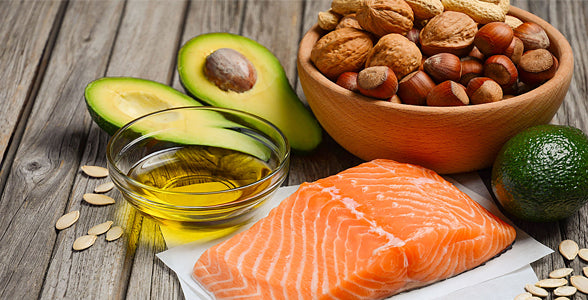
Digesting Fatty Foods with Lipase
Share
Lipase Function
Like many other enzymes, lipase is produced naturally by the body, in this case, in the pancreas. When you eat foods with fat content, the fat can’t be absorbed by the body in its original form. Lipase has the crucial function of breaking fats down into fatty acids and glycerol. These components are used throughout the body to provide energy.

Gallbladder Support
There are some types of lipase with more specific roles. For example, when food reaches the stomach, stomach cells create gastric lipase, specifically designed to target fat. However, in order to break fat down into what your body uses for energy, lipase doesn’t act alone.
Bile, which is created in the liver and stored and concentrated in the gallbladder, is released through a duct and emptied into the duodenum once fat reaches the small intestine.* Bile serves to emulsify fat molecules into much smaller molecules that lipase can act on.*
Eating fat actually stimulates the release of bile, so those with too little fat in their diets may develop gallbladder issues due to the bile becoming stagnant. Those who have had their gallbladder removed may have difficulty digesting fats, supplementing with lipase can ensure maximum digestion and nutrient absorption.*
Getting the Most from Lipase
The primary function of lipase is to help the body process and absorb fat. Science is now showing that there are other benefits that may come from this function. One of the most essential is the role lipase plays in managing triglycerides. This is a form of fat that is needed for energy; maintaining levels of triglycerides in the body can promote heart health.* Lipase helps keep triglycerides at a healthy level by breaking them down into smaller molecules, which the body then uses for energy.*
Studies have shown that some people with digestive issues may also benefit from supplemental lipase, especially if they have problems with their pancreas. If the pancreas’ ability to produce enzymes is diminished, this may lead to digestive complaints. Supplementing with enzymes, such as lipase, may be suggested as a way to help relieve occasional discomfort.*
Lipase Supplements
You don’t have to have problems in order to benefit from lipase supplementation. Enzymes on the whole not only help us with a smoother digestive process, but they also support the absorption of fat-soluble nutrients. Making sure you have the necessary lipase levels is one of the best complements you can have to a balanced diet for overall digestive health support.
In order to get the most out of your lipase supplement, it is important to get enough of it on a consistent basis. Taking a high-potency plant-based lipase supplement is a good way to ensure that this happens. This can help reduce discomfort associated with fatty food digestion, enable better nutrient absorption, and lower stress on the gallbladder, liver, and pancreas.*
_________________________________________________________________
Olivecrona G. Role of lipoprotein lipase in lipid metabolism. Curr Opin Lipidol. 2016;27(3):233-41.
Hamosh M. Lingual and gastric lipases. Nutrition. 1990;6(6):421-8.
Njeze GE. Gallstones. Niger J Surg. 2013;19(2):49-55.
Oscai LB, Essig DA, Palmer WK. Lipase regulation of muscle triglyceride hydrolysis. J Appl Physiol. 1990;69(5):1571-7.
Fieker A, Philpott J, Armand M. Enzyme replacement therapy for pancreatic insufficiency: present and future. Clin Exp Gastroenterol. 2011;4:55-73.
Siddiqui A, Thomas Jefferson University. Gallbladder and Biliary Tract. Merck Manual - Professional overview of biliary function. June 2018.

